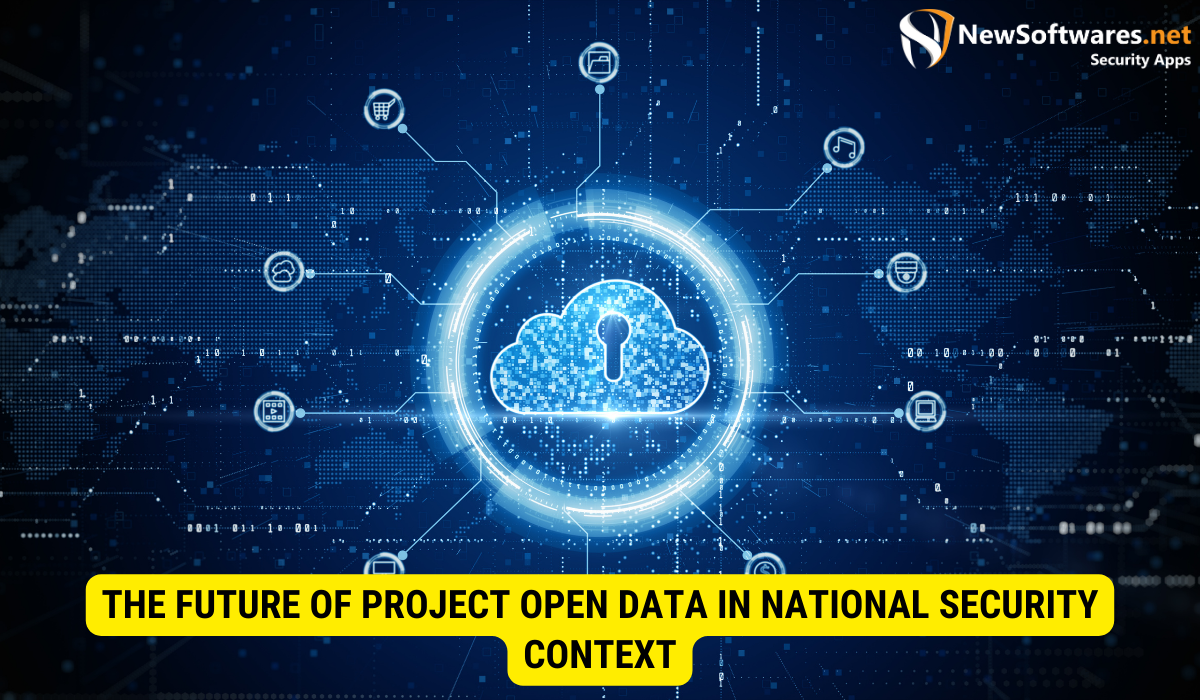Project Open Data poses potential national security risks related to data privacy, cyber attacks, and data manipulation. Mitigation strategies include strong data governance, enhanced cybersecurity measures, and responsible data sharing policies.
In an increasingly digital age, the concept of open data has gained traction as a means to promote transparency and accountability in government operations. Project Open Data, in particular, has been hailed as a groundbreaking initiative aimed at providing the public with access to government data. However, as with any endeavor that involves the proliferation of sensitive information, there are potential national security risks that must be carefully considered. Together, we will assess the various risks associated with Project Open Data and offers policy recommendations for a secure implementation.
Understanding Project Open Data

Before delving into the potential risks, it is important to have a clear understanding of Project Open Data and its goals. Project Open Data is an initiative that aims to make government data more accessible, discoverable, and usable by the public. By publishing data sets on various topics such as demographics, education, and health, the government seeks to foster transparency and facilitate innovation. The overarching concept behind open data is to leverage public collaboration to drive societal and economic progress.
The Concept and Goals of Open Data
At its core, open data promotes the idea that government data should be freely available to everyone. This approach allows individuals, organizations, and businesses to utilize the data for research, analysis, and development of various applications. The goals of open data include fostering public trust, enhancing government accountability, and facilitating evidence-based decision-making.
Open data has the potential to revolutionize the way we interact with government information. By providing access to a wide range of data sets, Project Open Data empowers individuals and organizations to explore and analyze information that was once locked away. This newfound accessibility allows for a more comprehensive understanding of societal issues and enables data-driven solutions to be developed.
Furthermore, open data promotes collaboration and innovation. By making government data available to the public, Project Open Data encourages individuals and organizations to come together and find creative ways to utilize the data. This collaborative approach can lead to the development of new applications, tools, and services that address pressing societal challenges.
The Role of Project Open Data in Government Transparency
One of the key objectives of Project Open Data is to enhance government transparency. By making government data easily accessible, citizens can gain insights into the inner workings of their government and hold it accountable. It allows for a greater understanding of public sector operations, budget allocation, and policy decisions. Project Open Data has the potential to empower citizens and promote a more informed and engaged citizenry.
Transparency is a cornerstone of a healthy democracy. When citizens have access to government data, they can make more informed decisions and actively participate in the democratic process. Project Open Data serves as a catalyst for transparency by providing the public with the tools and resources to access and analyze government data.
Moreover, transparency can lead to increased trust in government institutions. When citizens can easily access and verify government data, it fosters a sense of accountability and reduces the likelihood of corruption or misuse of public resources. Project Open Data plays a vital role in building trust between the government and its citizens.
Additionally, government transparency can drive innovation and economic growth. When entrepreneurs and businesses have access to government data, they can identify market opportunities, develop new products and services, and contribute to economic development. Project Open Data creates an environment that encourages innovation and entrepreneurship by providing a wealth of data for individuals and organizations to leverage.
In conclusion, Project Open Data is an important initiative that aims to make government data more accessible and transparent. By promoting open data principles, it empowers individuals, fosters collaboration, and drives societal and economic progress. Through Project Open Data, citizens can gain insights into government operations, hold their government accountable, and actively participate in the democratic process. The potential benefits of open data are vast, and its impact on society and governance is only beginning to be fully realized.
Identifying Potential National Security Risks
While the benefits of Project Open Data are evident, there are several potential national security risks that come along with the open dissemination of government information. It is crucial to identify these risks in order to implement appropriate measures to mitigate them.
Data Privacy and Protection Concerns
A primary concern when it comes to open data is the privacy and protection of sensitive information. Government data sets often contain personally identifiable information (PII) and classified intelligence. If this data falls into the wrong hands, it could have serious implications for national security and individual privacy. Proper data governance and robust security measures must be implemented to protect against unauthorized access and potential misuse.
The Threat of Cyber Attacks
As data becomes more accessible, the risk of cyber attacks becomes more significant. Data breaches and cyber attacks can compromise national security by exposing sensitive information and disrupting critical infrastructure. Project Open Data must be accompanied by adequate cybersecurity measures to safeguard against potential threats, such as data encryption, authentication protocols, and continuous monitoring.
The Risk of Misinformation and Data Manipulation
Another concern associated with open data is the potential for misinformation and data manipulation. Malicious actors can exploit vulnerabilities in data sets to manipulate information or spread disinformation. This can have far-reaching consequences, including public distrust in government institutions and compromised decision-making processes. Rigorous data validation and authentication mechanisms should be employed to ensure the integrity and accuracy of the data being made available.
Balancing Open Data and National Security
While the national security risks associated with Project Open Data are indeed significant, it is possible to strike a balance between openness and security. By implementing effective data governance strategies and risk mitigation measures, governments can reap the benefits of open data while ensuring the safety and security of their nation.
The Importance of Data Governance
Data governance plays a critical role in managing the risks associated with Project Open Data. Establishing clear data management policies, defining data ownership, and implementing data classification systems are essential steps in achieving secure data sharing and access. Additionally, robust data governance frameworks enable the identification and mitigation of potential risks in a proactive and systematic manner.
Strategies for Risk Mitigation
To mitigate the national security risks of Project Open Data, governments should adopt a multi-faceted approach that combines technological solutions with policy interventions. This can include implementing robust encryption algorithms, regularly updating software and systems, conducting comprehensive vulnerability assessments, fostering public-private partnerships in cybersecurity, and raising awareness among government employees and the public on best practices for data security.
Policy Recommendations for Secure Open Data Practices
Beyond risk mitigation, policymakers should consider enacting specific policies to ensure that Project Open Data is implemented securely and responsibly. These policies should aim to strengthen cybersecurity measures, enhance data privacy regulations, and promote responsible data sharing and use.
Strengthening Cybersecurity Measures
Enhancing cybersecurity measures is vital to safeguarding open data. Governments should invest in advanced technologies and expertise to detect and prevent cyber threats. Regular audits and assessments should also be conducted to identify vulnerabilities and implement necessary security upgrades.
Enhancing Data Privacy Regulations
Strong data privacy regulations are crucial to protect individuals’ personal information and prevent misuse. Governments should establish clear regulations and guidelines on the collection, storage, and sharing of sensitive data. Adequate penalties and enforcement mechanisms should be put in place to deter potential violations.
Promoting Responsible Data Sharing and Use
While open data promotes the sharing of information, responsible data sharing is essential to prevent misuse and protect national security interests. Governments should collaborate with data users, industry experts, and civil society organizations to develop best practices and guidelines for responsible data access, usage, and sharing.
The Future of Project Open Data in National Security Context

As technology continues to evolve, the future of Project Open Data in the national security context will be shaped by both potential developments and challenges. It is crucial to adapt and respond to these changes to ensure a secure and sustainable open data environment.
Potential Developments and Challenges
Advancements in technologies such as artificial intelligence, blockchain, and quantum computing will present both opportunities and challenges for Project Open Data. While these technologies can enhance data security, they also introduce new risks that must be carefully managed. Governments must continue to monitor and adapt their strategies to address emerging threats and advancements.
The Role of Technological Advancements in Data Security
While technology can pose risks, it also offers solutions to enhance data security. Governments should leverage technological advancements, such as advanced encryption techniques and data analytics tools, to strengthen the security capabilities of Project Open Data. By staying at the forefront of technological innovations, governments can proactively address potential vulnerabilities and improve the overall security of open data initiatives.
Key Takeaways
- Project Open Data seeks to promote transparency and accountability by making government data accessible to the public.
- Potential national security risks associated with open data include data privacy concerns, cyber attacks, and data manipulation.
- Effective data governance and risk mitigation strategies can help strike a balance between open data and national security.
- Policy recommendations include strengthening cybersecurity measures, enhancing data privacy regulations, and promoting responsible data sharing and use.
- The future of Project Open Data in the national security context will be shaped by technological advancements and associated challenges.
FAQs
What is Project Open Data?
Project Open Data is an initiative aimed at making government data more accessible, discoverable, and usable by the public. It seeks to enhance transparency and drive innovation.
What are the potential national security risks of open data?
Potential national security risks associated with open data include data privacy concerns, the threat of cyber attacks, and the risk of data manipulation.
How can governments mitigate the risks of open data?
Governments can mitigate the risks of open data by implementing effective data governance strategies, investing in cybersecurity measures, and enacting policies to enhance data privacy and promote responsible data sharing and use.
What are the policy recommendations for secure open data practices?
The policy recommendations for secure open data practices include strengthening cybersecurity measures, enhancing data privacy regulations, and promoting responsible data sharing and use.
How can technological advancements enhance data security in Project Open Data?
Technological advancements, such as advanced encryption techniques and data analytics tools, can enhance data security in Project Open Data by strengthening the security capabilities and effectively addressing potential vulnerabilities.
Conclusion
Project Open Data has the potential to transform government operations, promote transparency, and foster public trust. However, along with the benefits come potential national security risks that must be carefully considered and managed. By implementing effective data governance strategies, robust cybersecurity measures, and appropriate policy recommendations, governments can strike a balance between the openness of data and the security of their nation. With proper precautions, Project Open Data can continue to advance national security goals while empowering citizens and driving innovative solutions for societal challenges.
